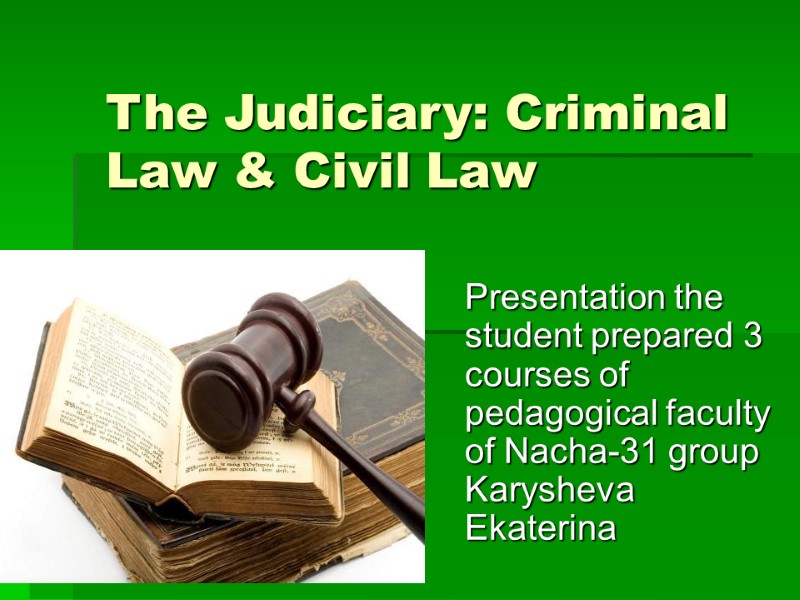 The Judiciary: Criminal Law & Civil Law Presentation the student prepared 3 courses of pedagogical faculty of Nacha-31 group Karysheva Ekaterina
The Judiciary: Criminal Law & Civil Law Presentation the student prepared 3 courses of pedagogical faculty of Nacha-31 group Karysheva Ekaterina
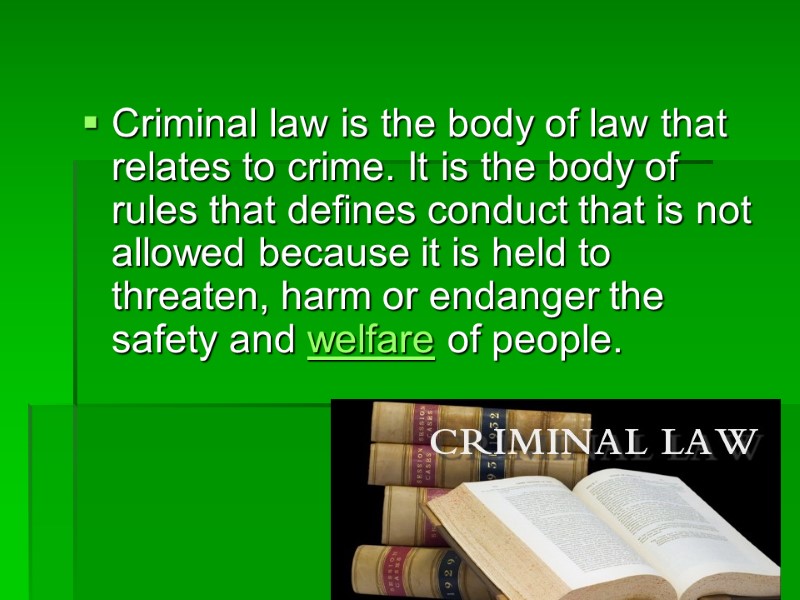 Criminal law is the body of law that relates to crime. It is the body of rules that defines conduct that is not allowed because it is held to threaten, harm or endanger the safety and welfare of people.
Criminal law is the body of law that relates to crime. It is the body of rules that defines conduct that is not allowed because it is held to threaten, harm or endanger the safety and welfare of people.
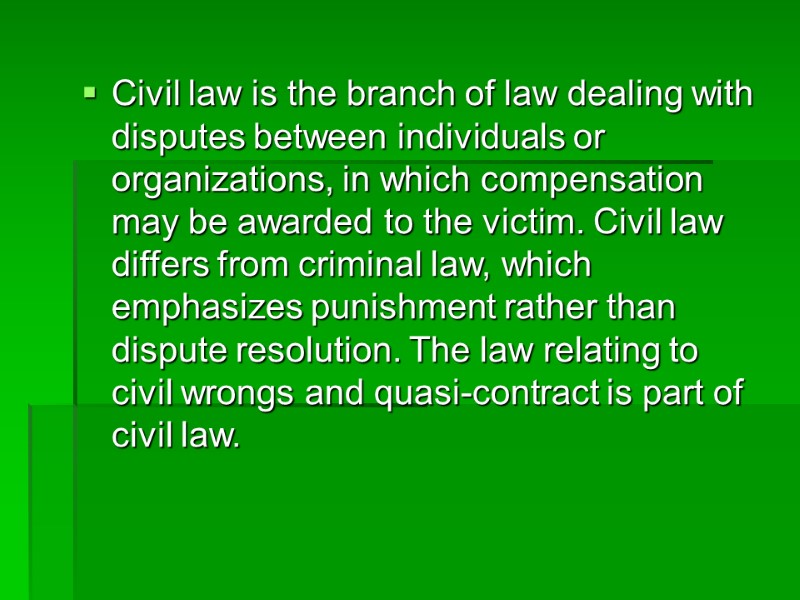 Civil law is the branch of law dealing with disputes between individuals or organizations, in which compensation may be awarded to the victim. Civil law differs from criminal law, which emphasizes punishment rather than dispute resolution. The law relating to civil wrongs and quasi-contract is part of civil law.
Civil law is the branch of law dealing with disputes between individuals or organizations, in which compensation may be awarded to the victim. Civil law differs from criminal law, which emphasizes punishment rather than dispute resolution. The law relating to civil wrongs and quasi-contract is part of civil law.
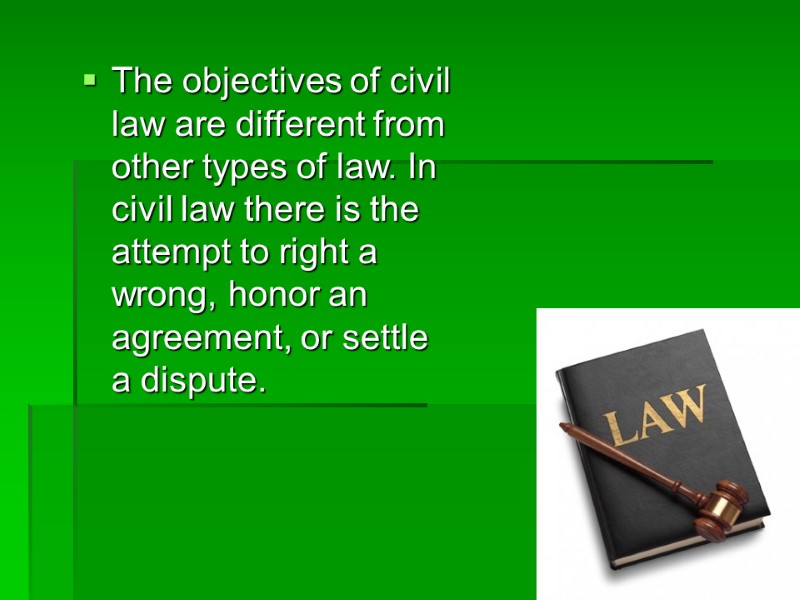 The objectives of civil law are different from other types of law. In civil law there is the attempt to right a wrong, honor an agreement, or settle a dispute.
The objectives of civil law are different from other types of law. In civil law there is the attempt to right a wrong, honor an agreement, or settle a dispute.
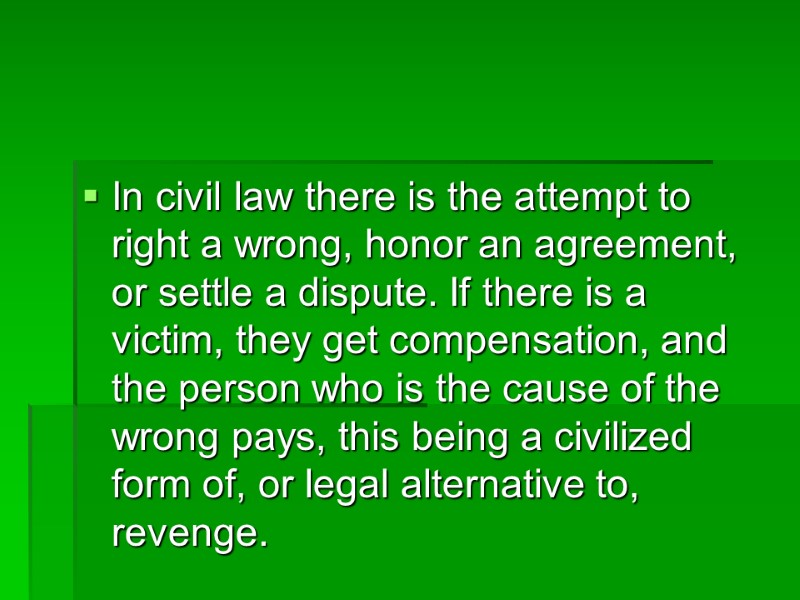 In civil law there is the attempt to right a wrong, honor an agreement, or settle a dispute. If there is a victim, they get compensation, and the person who is the cause of the wrong pays, this being a civilized form of, or legal alternative to, revenge.
In civil law there is the attempt to right a wrong, honor an agreement, or settle a dispute. If there is a victim, they get compensation, and the person who is the cause of the wrong pays, this being a civilized form of, or legal alternative to, revenge.
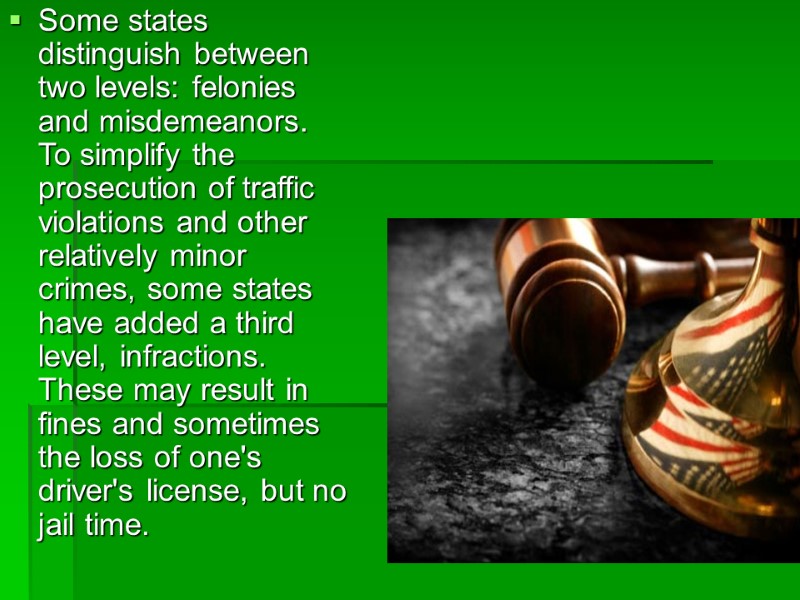 Some states distinguish between two levels: felonies and misdemeanors. To simplify the prosecution of traffic violations and other relatively minor crimes, some states have added a third level, infractions. These may result in fines and sometimes the loss of one's driver's license, but no jail time.
Some states distinguish between two levels: felonies and misdemeanors. To simplify the prosecution of traffic violations and other relatively minor crimes, some states have added a third level, infractions. These may result in fines and sometimes the loss of one's driver's license, but no jail time.
 Thank you for attention!
Thank you for attention!















